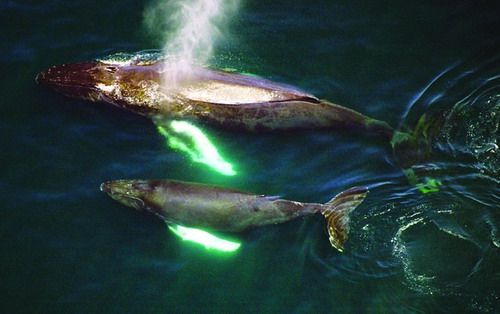-

[科學(xué)閱讀] 科普閱讀:為什么小朋友走路會(huì)更容易感覺累?
If you’ve ever had to pick up and carry a tired child through the mall, you know that walking sometimes tuckers out the toddlers. Now scientists think they know why. The results appear in the J2012-01-12 編輯:Richard
-

[科學(xué)閱讀] 科普閱讀:座頭鯨為找配偶能游多遠(yuǎn)?
A woman from Hancock, Maine, discovered that a tourist snapshot of a humpback whale on Flickr matched with photos documented in the Allied Whale research catalogue, providing proof that this whale ha2012-01-11 編輯:Richard
-

[科學(xué)閱讀] 科普閱讀:時(shí)間VS金錢 左右你心情的是......?
Priming our mind with thoughts of time or money influences our future behavior. Christie Nicholson reports[qh]把金錢或者時(shí)間放在首位,將會(huì)影響你未來的行為方式。[qh]A study published this week in the2012-01-10 編輯:Richard
-

[科學(xué)閱讀] 科普閱讀:世界上最輕的物質(zhì)有多輕?
Six thousand billion of them are going through your body every second. That’s physicist Lawrence Krauss on neutrinos, on the June 15th weekly Science Talk podcast. Neutrinos are the lightest el2012-01-09 編輯:Richard
-

[科學(xué)閱讀] 科普閱讀:要想心情好 去公園散步吧
This podcast is one minute long. If you listen while going for a walk in a park or working in a garden, you’re 20 percent of the way to giving your mental health a good boost.[qh]別看本播客只有2012-01-06 編輯:Richard
-
[科學(xué)閱讀] 科普閱讀:溫室氣體排放的真正元兇是誰?
We're not just outsourcing jobs to China and India. We're outsourcing pollution. So says a new analysis of global trade published in the March 1 Proceedings of the National Academy of Science2012-01-05 編輯:Richard
-

[科學(xué)閱讀] 科普閱讀:雞視野里的特殊世界
一項(xiàng)在《壹號(hào)科學(xué)公共圖書館》雜志上的發(fā)表的研究表明,雞比人多了一種視網(wǎng)膜錐(體),使得它們能夠分辨一些人類看不到的顏色。卡倫·霍普金報(bào)告。Bring home a bucket of fried chicken and you may find that peop2012-01-04 編輯:Richard
-

[科學(xué)閱讀] 科普閱讀:打盹兒能提高學(xué)習(xí)效率
Wanna be lazy and productive at the same time? Try a nap—because napping can improve learning. So said U.C. Berkeley’s Matthew Walker February 21st at the meeting of the American Association f2011-12-31 編輯:Richard
-
[科學(xué)閱讀] 太陽能發(fā)電新技術(shù):所需硅料只有當(dāng)前技術(shù)水平的1%
A study in the journal Nature Materials details the creation of a nanowire-based technology that absorbs solar energy at comparable levels to currently available systems while using only 1 percent of2011-12-30 編輯:Richard








